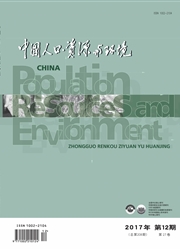

 中文摘要:
中文摘要:
工业化对于一个国家或地区经济腾飞的重要性。已经被西方发达国家的经验和道路所证实。在实现工业化的过程中。农村劳动力转移是世界各国都曾经或必将面对的重要课题。本文运用行为主义研究方法。利用2003—2006年全国农村固定观察点的数据,建立Probit模型实证分析了农民个体特征和农户家庭特征对农村非农就业的影响。研究发现:就样本个人特征而言,户主或家庭主要经营者、男性、文化程度较高、身体健康的农民从事农村非农就业的意愿更强,职业教育或培训对于农村非农就业有明显的促进作用,而是否农业户口对农村非农就业的影响并不明显。就样本家庭特征而言,家庭类型会影响农民在农村的非农就业倾向,同时。乡村干部户从事非农产韭的倾向性更强,少数民族户和信教户从事非农产业的倾向性较弱,“是否国家干部职工户”、“是否党员户”对农村非农就业的影响并不显著。重视农民的个人特征和家庭特征蓑异,大力发展农村非农产业。促进农村非农就业是我国政府解决农村剩余劳动力转移问题的重要战略选择。
 英文摘要:
英文摘要:
Experience and history in west developed countries have showed that industrialization is necessary to economy flight. During industrialization, labor migration is the problem which has to deal with for every country. Based on the data collected from stable survey in countryside over the period from 2003 to 2006, the paper established Prohit model to analyze how farmer' s individual traits affect non-farm employment in rural area by using behavioristic methods. The study found: In terms of personal characteristics, the farmer who is the head of the household or engaged in the family' s main business, male, at higher educational level, and physically healthy will has stronger will to rural non-farm employment and vocational education or training is significant to rural non-farm employment. The effect of rural residence (hukou) is not obvious to rural non-farm employment. In terms of family characteristics, family type will affect the farmers in the rural non-farm employment. At the same time, households of the village officials are in a stronger tendency towards non-farm employment. Farmers of ethnic minority and religious households have weak will to be engaged in non-farm employment. Never the less, households of state officials and party members are not significant to rural non-farm employment. In order to solve the migration of surplus rural labor, great efforts must be made to develop and promote non-farm industry as well as non-farm employment.
 同期刊论文项目
同期刊论文项目
 同项目期刊论文
同项目期刊论文
 期刊信息
期刊信息
